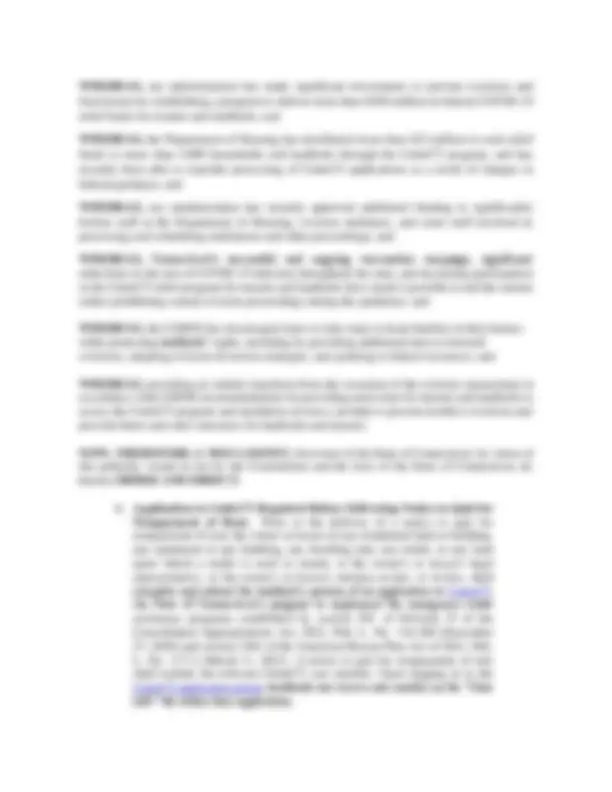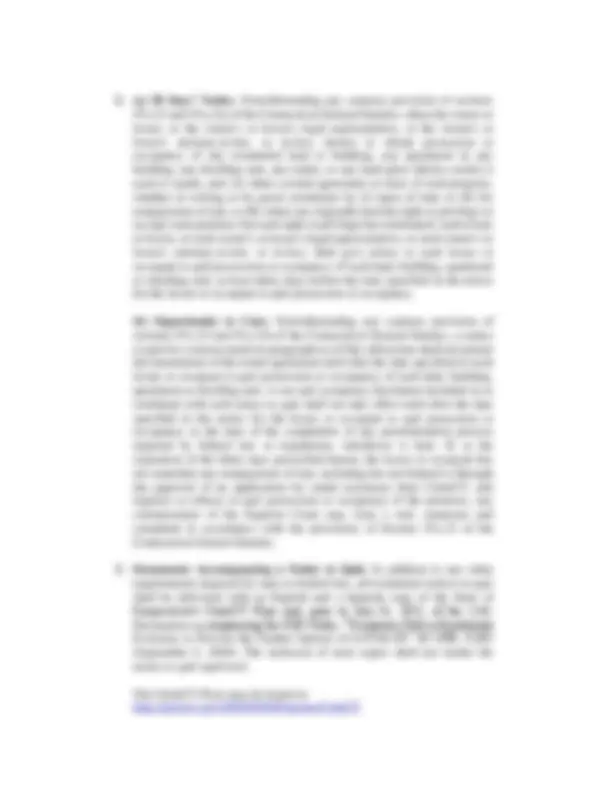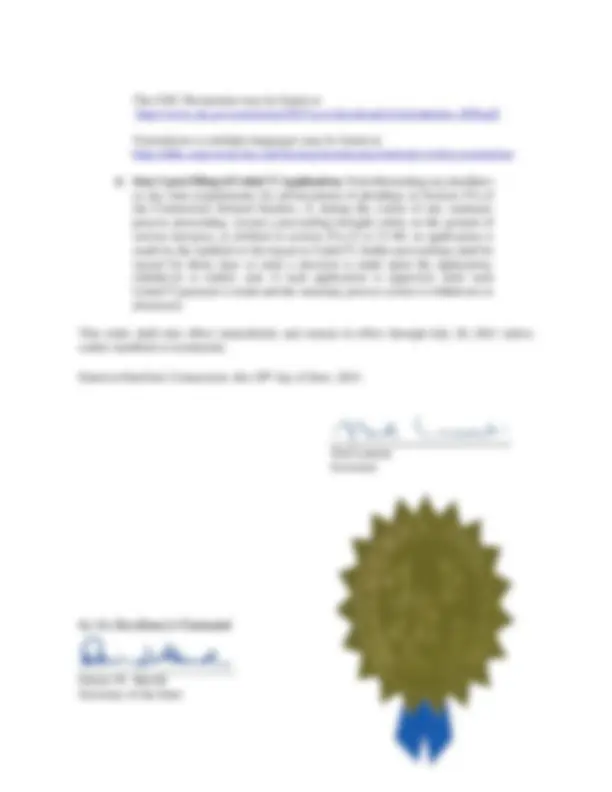





Study with the several resources on Docsity

Earn points by helping other students or get them with a premium plan


Prepare for your exams
Study with the several resources on Docsity

Earn points to download
Earn points by helping other students or get them with a premium plan
Community
Ask the community for help and clear up your study doubts
Discover the best universities in your country according to Docsity users
Free resources
Download our free guides on studying techniques, anxiety management strategies, and thesis advice from Docsity tutors
Connecticut Governor Ned Lamont's executive orders related to evictions and notices to quit during the COVID-19 pandemic. The orders extend the moratorium on evictions and require landlords to give tenants at least 30 days' notice before requiring them to vacate. The document also mentions the distribution of relief funds to prevent evictions and the successful vaccination campaign in Connecticut.
Typology: Study notes
1 / 5

This page cannot be seen from the preview
Don't miss anything!




WHEREAS , on March 10, 2020, I declared public health and civil preparedness emergencies throughout the State of Connecticut as a result of the coronavirus disease 2019 (COVID-19) outbreak in the United States and Connecticut; and WHEREAS, on September 1, 2020, I renewed the March 10, 2020 declaration of public health and civil preparedness emergencies and also issued new declarations of public health and civil preparedness emergencies, which new and renewed emergencies remained in effect until February 9, 2021; and WHEREAS, on January 26, 2021, I renewed the March 10, 2020 and September 1, 2020 declarations of public health and civil preparedness emergencies and also issued new declarations of public health and civil preparedness emergencies, which new and renewed emergencies shall run concurrently and remain in effect until April 20, 2021; and WHEREAS, on March 31, 2021, I signed into law Special Act 21-2, through which the General Assembly ratified the previously mentioned declarations and endorsed a renewal and extension of such declarations through May 20, 2021; and WHEREAS, on April 19, 2021, I renewed the March 10, 2020, September 1, 2020 and January 26, 2021 declarations of public health and civil preparedness emergencies and also issued new declarations of public health and civil preparedness emergencies, which new and renewed emergencies shall run concurrently and remain in effect until through May 20, 2021; and WHEREAS, on May 13, 2021, I signed into law House Bill 6686, through which the General Assembly endorsed a renewal and extension of such declarations and authorized me to continue to exercise the emergency powers provided in Sections 19a-131a and 28-9 of the Connecticut General Statutes through July 20, 2021; and WHEREAS, on May 18, 2021, I renewed the March 10, 2020, September 1, 2020, January 26, 2021 and April 19, 2021, declarations of public health and civil preparedness emergencies and also issued new declarations of public health and civil preparedness emergencies, which new and renewed emergencies shall run concurrently and remain in effect until through July 20, 2021; and
WHEREAS , COVID-19 is a respiratory disease that spreads easily from person to person and may result in serious illness or death; and WHEREAS, the World Health Organization has declared the COVID-19 outbreak a pandemic; and WHEREAS, the COVID-19 pandemic remains a grave threat to public health and safety and civil preparedness in the State of Connecticut; and WHEREAS, public health experts have determined that it is possible to transmit COVID- 19 even before a person shows symptoms and through aerosol transmission; and transmission or “shedding” of the coronavirus that causes COVID-19 may be most virulent before a person shows any symptoms; and WHEREAS, the CDC has recommended that people with mild symptoms consistent with COVID-19 be assumed to be infected with the disease; and WHEREAS , to reduce the spread of COVID-19, the United States Centers for Disease Control and Prevention (CDC) and the Connecticut Department of Public Health (DPH) recommend implementation of community mitigation strategies to slow transmission of COVID-19, including, in certain settings whether vaccinated or not, maintaining a safe distance from others and wearing masks or face coverings; and WHEREAS, pursuant to the previously mentioned emergency declarations, I have issued various executive orders to protect public health, limit transmission of COVID-19, and mitigate the effects of the COVID-19 pandemic (the “COVID-19 Orders”); and WHEREAS, among such COVID-19 Orders, to reduce the risk of homelessness and the resultant increased risk of COVID-19 transmission among those affected by evictions, I have issued several orders limiting the filing and processing of evictions; and WHEREAS, in conjunction with extending the federal eviction moratorium through the end of July 2021, the CDC found that evictions substantially contribute to COVID-19 transmission, that state and national vaccination efforts have a slower rate of penetration among the populations most likely to experience eviction, and that allowing additional time for rent relief to reach renters and to further increase vaccination rates could decrease the numbers of likely evictions and avert the potential of COVID-19 resurgence among people who experience eviction, their communities, and other regions of the country affected by the resulting transmission; and WHEREAS, section 4024(c)(1) of the CARES Act requires landlords with federally-backed mortgage loans to provide tenants with 30 days’ notice before requiring them to vacate for nonpayment of rent; and WHEREAS, the United States Department of Justice (USDOJ) has cited studies showing that women and people of color will be disproportionately affected by an increase in eviction filings; and
2. (a) 30 Days’ Notice. Notwithstanding any contrary provision of sections 47a-23 and 47a-23a of the Connecticut General Statutes, when the owner or lessor, or the owner's or lessor's legal representative, or the owner's or lessor's attorney-at-law, or in-fact, desires to obtain possession or occupancy of any residential land or building, any apartment in any building, any dwelling unit, any trailer, or any land upon which a trailer is used or stands, and (A) when a rental agreement or lease of such property, whether in writing or by parol, terminates by (I) lapse of time or (II) for nonpayment of rent, or (B) when one originally had the right or privilege to occupy such premises but such right or privilege has terminated, such owner or lessor, or such owner's or lessor's legal representative, or such owner's or lessor's attorney-at-law, or in-fact, shall give notice to each lessee or occupant to quit possession or occupancy of such land, building, apartment or dwelling unit, at least thirty days before the time specified in the notice for the lessee or occupant to quit possession or occupancy. (b) Opportunity to Cure. Notwithstanding any contrary provision of sections 47a-23 and 47a-23a of the Connecticut General Statutes, a notice to quit for a reason stated in paragraph (a) of this subsection shall not permit the termination of the rental agreement until after the date specified to each lessee or occupant to quit possession or occupancy of such land, building, apartment or dwelling unit. A use and occupancy disclaimer included in or combined with such notice to quit shall not take effect until after the date specified in the notice for the lessee or occupant to quit possession or occupancy or the date of the completion of any pretermination process required by federal law or regulations, whichever is later. If, at the expiration of the thirty days prescribed herein, the lessee or occupant has not remedied any nonpayment of rent, including but not limited to through the approval of an application for rental assistance from UniteCT, and neglects or refuses to quit possession or occupancy of the premises, any commissioner of the Superior Court may issue a writ, summons and complaint in accordance with the provisions of Section 47a-23 of the Connecticut General Statutes. 3. Documents Accompanying a Notice to Quit. In addition to any other requirements imposed by state or federal law, all residential notices to quit shall be delivered with an English and a Spanish copy of the State of Connecticut’s UniteCT Flyer and, prior to July 31, 2021, of the CDC Declaration accompanying the CDC Order, “Temporary Halt in Residential Evictions to Prevent the Further Spread of COVID-19,” 85 CFR 55292 (September 4, 2020). The inclusion of such copies shall not render the notice to quit equivocal. The UniteCT Flyer may be found at: https://portal.ct.gov/DOH/DOH/Programs/UniteCT
The CDC Declaration may be found at: https://www.cdc.gov/coronavirus/2019-ncov/downloads/evictiondeclare_d508.pdf Translations to multiple languages may be found at: https://nlihc.org/coronavirus-and-housing-homelessness/national-eviction-moratorium
4. Stay Upon Filing of UniteCT Application. Notwithstanding any deadlines or any time requirements for advancement of pleadings in Section 47a of the Connecticut General Statutes, if, during the course of any summary process proceeding, except a proceeding brought solely on the ground of serious nuisance, as defined in section 47a-15 or 21-80, an application is made by the landlord or the tenant to UniteCT, further proceedings shall be stayed for thirty days or until a decision is made upon the application, whichever is earlier, and, if such application is approved, until such UniteCT payment is made and the summary process action is withdrawn or dismissed. This order shall take effect immediately and remain in effect through July 20, 2021 unless earlier modified or terminated. Dated at Hartford, Connecticut, this 30 th^ day of June, 202 1. Ned Lamont Governor By His Excellency’s Command __________________________ Denise W. Merrill Secretary of the State